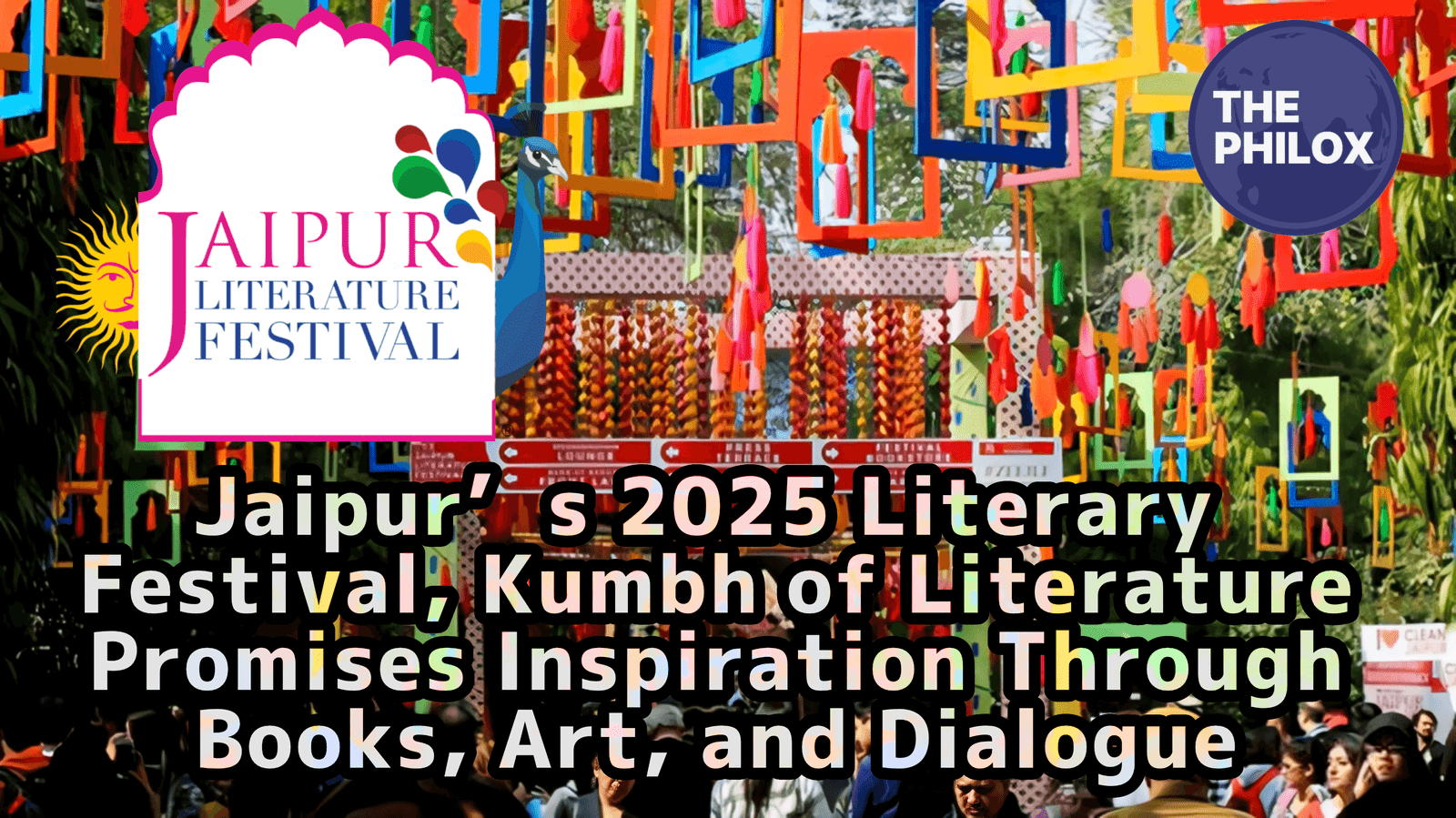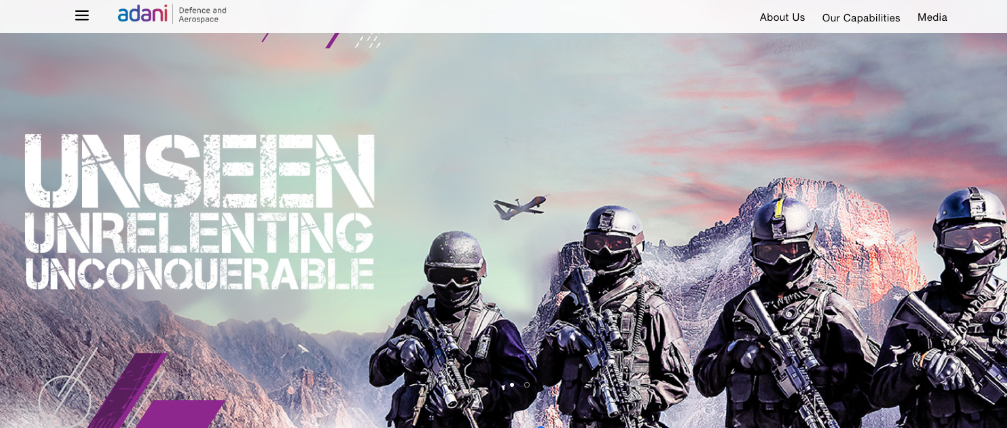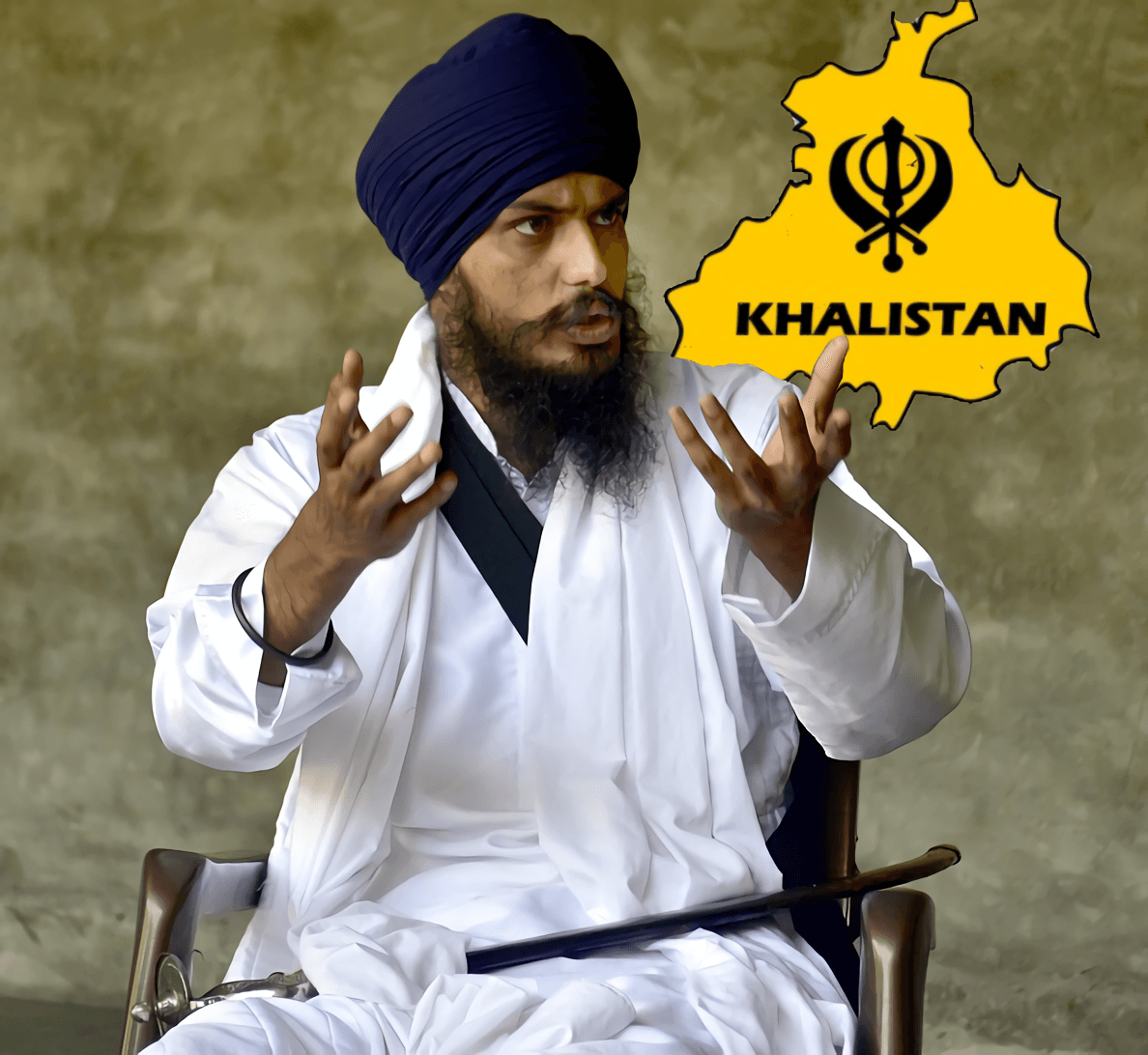Exploring the Jaipur Literature Festival 2025: A Literary Kumbh
The Jaipur Literature Festival (JLF), often described as the “greatest literary show on Earth,” has become an annual pilgrimage for book lovers, writers, and intellectuals from around the globe.
Held in the vibrant city of Jaipur, this festival not only celebrates literature but also embraces the rich cultural heritage of Rajasthan. As we delve into the 2025 edition of JLF, let’s explore what makes this event a beacon of literary and cultural exchange.
The Genesis and Evolution
Founded in 2006 by writers Namita Gokhale and William Dalrymple, along with producer Sanjoy Roy of Teamwork Arts, the Jaipur Literature Festival began as a modest gathering in the shadow of Jaipur’s historic Diggi Palace.
Over the years, it has evolved into what is now considered the world’s largest free literary festival, attracting hundreds of thousands of visitors. The festival’s growth is a testament to the universal appeal of storytelling and the hunger for intellectual discourse in a world increasingly dominated by digital media.
The JLF of 2025, taking place from January 30 to February 3 at Hotel Clarks Amer, Jaipur, promises to continue this legacy with its 18th edition.
This year’s festival is set to host over 300 speakers across five venues, focusing on themes like democracy, equality, crime fiction, biographies, and memoirs, reflecting narratives that shape our contemporary world.
The Line-Up of Literary Luminaries
The festival has always prided itself on its eclectic mix of speakers, ranging from Nobel laureates to emerging poets, journalists, historians, and entertainers.
This year, attendees can look forward to engaging sessions with figures like Abhijit Banerjee, an economist known for his work on poverty alleviation, and Andrew O’Hagan, whose novels delve deep into the human condition.
The presence of Anirudh Kanisetti, exploring South Asian history, and Anna Funder, with her poignant narratives, adds layers of historical and contemporary insights.
Moreover, the festival will see contributions from cultural icons like Javed Akhtar and Imtiaz Ali, blending literature with cinematic storytelling, while authors like Esther Duflo and David Hare will tackle issues from economics to theatre.
This diverse lineup ensures discussions that are as varied as they are profound, touching on literary, social, and political themes.
Cultural Richness Beyond Books
The Jaipur Literature Festival is not just about books; it’s a cultural extravaganza. The event integrates music, art, and the traditional crafts of Rajasthan into its fabric.
From the rhythmic beats of Khartal maestro Bhungar Khan to performances at the heritage evening at Amer Fort, JLF 2025 will be a sensory feast.
The festival’s commitment to showcasing local culture is evident in the colorful bazaars set up by local artisans, offering everything from handmade jewelry to traditional Rajasthani attire.
Additionally, the festival includes a dedicated music stage, where artists from various genres perform, adding a musical dimension to the literary discussions. This blend of literature with live performances creates a unique atmosphere where ideas are not only discussed but celebrated with music and dance.
Championing Linguistic Diversity
A notable feature of JLF 2025 is its commitment to linguistic diversity. Sessions will be conducted in multiple Indian languages including Hindi, Bengali, Rajasthani, Kannada, Tamil, Telugu, Odia, Sanskrit, Assamese, Malayalam, Marathi, Punjabi, and Urdu.
This initiative not only broadens the festival’s reach but also celebrates India’s rich tapestry of languages, making literature accessible to a wider demographic.
Sustainability at the Heart
With an increasing global consciousness towards environmental issues, JLF has taken steps towards sustainability. The 2025 edition will focus on environmentally-conscious practices, aiming to reduce the carbon footprint of such a large gathering.
This includes initiatives like minimizing waste, promoting digital over physical resources where possible, and encouraging green transport options for attendees. This year’s festival will be a testament to how cultural events can also lead in environmental stewardship.
Community Engagement and Inclusivity
One of the most celebrated aspects of the Jaipur Literature Festival is its inclusivity. With free entry (upon registration), the festival democratizes access to literature, allowing everyone from students to senior citizens to participate in the cultural dialogue.
Special efforts like sign language interpretation sessions ensure that the festival is accessible to all, embodying the spirit of inclusivity not just in words but in action.
Inclusivity remains central to the Jaipur Literature Festival. This year, the festival will continue its collaboration with Nupur Sansthan to offer sign language interpretation sessions.
This initiative, widely appreciated in previous editions, ensures that the event remains accessible to everyone, fostering a space where stories and ideas can reach all individuals, regardless of physical abilities.
Sustainability will also be a major focus in 2025, reflecting the growing global awareness of environmental responsibility. From reducing waste to adopting eco-friendly practices, the festival is committed to minimizing its carbon footprint and setting an example for large cultural events worldwide.
Language and cultural diversity will take center stage at the festival, with the theme “Many Languages, One Literature.
” The event will showcase works in 26 languages, including 13 Indian and 13 international languages, highlighting the importance of multilingual appreciation. This celebration of linguistic diversity opens doors to new worlds and fosters cross-cultural dialogue, enriching the festival’s offerings.
A host of authors and thinkers will present their latest works, enriching discussions with fresh ideas and perspectives. M.K. Ranjitsinh, a pioneering conservationist, will discuss his book “Mountain Mammals of the World,” which explores mountain mammals globally and underscores the urgent need for wildlife preservation.
Historian A.R. Venkatachalapathy will present his work “Swadeshi Steam,” which sheds light on the life of a freedom fighter and the nationalist struggle in South India.
Acclaimed Malayalam author K.R. Meera will share insights into her gripping novel “Assassin,” a powerful narrative exploring resilience and societal complexities.
Cinema and storytelling will also feature prominently at the festival. Legendary actor-director Amol Palekar, along with his wife and co-author Sandhya Gokhale, will discuss his memoir “Viewfinder,” reflecting on his creative journey and acclaimed films such as “Gol Maal,” “Chhoti Si Baat,” and “Rajnigandha.” Celebrated filmmaker Imtiaz Ali, known for films like “Jab We Met” and “Tamasha,” will explore the nuances of relationships and self-discovery in cinema. Renowned poet and lyricist Javed Akhtar will bring his eloquence to the stage, blending traditional and contemporary poetry to captivate audiences.
Booker Prize-winning author Geetanjali Shree will present her novel “Our City That Year,” which offers a profound meditation on identity and grief. Her earlier novel “Ret Samadhi” (“Tomb of Sand”) brought her international recognition and acclaim.
Ijeoma Oluo, author of the bestseller “So You Want to Talk About Race,” will address pressing global conversations on racial equity and justice. Political commentator Mujibur Rehman will discuss themes of democracy and pluralism, shedding light on the complexities of contemporary political landscapes.
Renowned food writer Matt Preston will share anecdotes from his memoir “Big Mouth,” offering a unique perspective on culinary traditions.
Art history will also find representation at the festival. Katy Hessel, art historian and curator, will present her groundbreaking work “The Story of Art Without Men,” which reshapes narratives on female artists from the 1500s to the present day. Historian Manu S. Pillai will revisit South Asia’s rich history through his latest book, “Gods, Guns and Missionaries,” providing a fresh perspective on the region’s vibrant past.
The festival will also welcome Nobel laureates Abhijit Banerjee and Esther Duflo. Banerjee will share insights from his book “Chhaunk: On Food, Economics And Society,” which combines food and economics,
while Duflo will discuss “Poor Economics for Kids,” a work aimed at addressing global economic challenges in an accessible way. Culinary traditions will further be explored by Susan Jung, whose book “Kung Pao and Beyond” delves into Asia’s diverse and rich cuisine heritage.
David Hare, a renowned playwright and screenwriter, will discuss his book “We Travelled: Essays and Poems,” offering insights into his contributions to theatre, film, and literature.
Gopalkrishna Gandhi, a distinguished diplomat and author, will reflect on the enduring legacy of Mahatma Gandhi, emphasizing the relevance of his principles in today’s world. Naturalist Yuvan Aves will present his work “Intertidal,” highlighting the importance of biodiversity and environmental conservation.
The Jaipur Literature Festival has always been more than just a celebration of literature; it is a space for dialogue, learning, and cultural exchange.
With its impressive lineup of speakers, engaging themes, and a strong commitment to inclusivity and sustainability, the 2025 edition promises to be an unforgettable experience.
For five days, Jaipur will transform into a hub of ideas and creativity, reaffirming the festival’s status as a global platform for intellectual and cultural enrichment.
Controversies and Challenges
The festival’s journey has not been without its controversies. One of the most notable was in 2012 when Salman Rushdie was forced to cancel his participation due to threats over his book, “The Satanic Verses.
” Such incidents have sparked debates on freedom of speech and expression, topics that continue to be explored in the festival’s sessions. These challenges have, in a way, fortified the festival’s stance as a platform for free and fearless discourse.
The Global Influence of JLF
From its inception, JLF has extended its reach beyond Jaipur. It now includes editions in cities like London, New York, and Toronto, bringing the essence of Jaipur’s literary spirit to an international audience.
These extensions have allowed JLF to “feel the throbbing pulse of the literary imagination around our planet,” as Namita Gokhale puts it, sharing stories and cultures across continents. This global footprint underscores the festival’s role not just as a local event but as a significant player on the world’s cultural stage.
A Confluence of Minds: The Speaker Lineup
This year’s festival boasts a remarkable assembly of luminaries, including Nobel laureates, Booker Prize winners, journalists, policymakers, and acclaimed writers. Notable participants include Abhijit Banerjee, Esther Duflo, David Hare, and Venki Ramakrishnan, among others. Their collective expertise spans various disciplines, promising enriching discussions and insights.
Diverse Themes and Engaging Sessions
JLF 2025 is set to explore a multitude of themes that resonate with contemporary societal discourses:
- Democracy and Equality: Sessions will delve into the enduring pursuit of justice and the realities underlying constitutional ideals, fostering critical conversations on governance and civil rights.
- Crime Fiction: This segment will captivate audiences with narratives filled with mystery and suspense, highlighting the genre’s evolution and its cultural impact.
- Biographies and Memoirs: Attendees can anticipate intimate glimpses into extraordinary lives, offering perspectives that inspire and provoke thought.
- Gastronomy: For culinary enthusiasts, discussions will celebrate food traditions and flavors that bridge cultures, emphasizing the unifying power of cuisine.
- Theatre, Cinema, History, and Culture: A broad spectrum of sessions will present diverse viewpoints, honoring the narratives that shape our shared heritage.
Commitment to Inclusivity
Staying true to its inclusive ethos, JLF 2025 will reintroduce Sign Language Interpretation Sessions in collaboration with Nupur Sansthan. This initiative ensures accessibility, creating an environment where stories and ideas are shared universally.
Focus on Sustainability
In line with global environmental consciousness, the festival emphasizes sustainable practices throughout its duration. This commitment reflects an awareness of the ecological impact of large gatherings and a dedication to minimizing the festival’s carbon footprint.
Celebrating Linguistic Diversity
Embracing the theme ‘Many Languages, One Literature,’ JLF 2025 will feature works in 26 languages—13 Indian and 13 international. This celebration of linguistic diversity opens avenues to new worlds, fostering multilingual appreciation and cross-cultural dialogue.
Notable Works and Contributions
Several speakers will present their recent works, contributing to the festival’s rich tapestry of discussions:
- M.K. Ranjitsinh: A pioneering conservationist, he will discuss his latest book, “Mountain Mammals of the World,” offering a comprehensive exploration of mountain mammals globally and underscoring his dedication to wildlife preservation.
- A.R. Venkatachalapathy: The historian’s recent work, “Swadeshi Steam,” explores the life of a freedom fighter and the nationalist struggle in South India, providing insights into regional histories.
- K.R. Meera: An acclaimed Malayalam author, she is celebrated for her gripping novel “Assassin,” which delves into themes of resilience and societal complexities.
- Amol Palekar and Sandhya Gokhale: The iconic actor-director, along with his wife and co-author, will discuss his memoir “Viewfinder,” reflecting on his creative journey and acclaimed films such as “Gol Maal” and “Chhoti Si Baat.”
- Imtiaz Ali: The celebrated filmmaker, known for “Jab We Met” and “Tamasha,” will explore the nuances of relationships and self-discovery in contemporary cinema.
- Javed Akhtar: The renowned poet and lyricist will bring eloquence to the stage, continuing his legacy of blending traditional and contemporary poetry.
- Geetanjali Shree: Her novel “Ret Samadhi” (“Tomb of Sand”) won the International Booker Prize. Her latest book, “Our City That Year,” serves as a profound meditation on identity and grief.
- Ijeoma Oluo: The bestselling author of “So You Want to Talk About Race” will address global conversations on racial equity and justice, contributing to critical dialogues on inclusivity.
- Matt Preston: The celebrated food writer will offer a feast for thought with his memoir “Big Mouth,” sharing insights into culinary traditions and personal anecdotes.
- Katy Hessel: An art historian, curator, and broadcaster, her groundbreaking work “The Story of Art Without Men” reshapes narratives on female artists, highlighting their contributions from 1500 to the present day.
- Manu S. Pillai: The historian’s latest work, “Gods, Guns and Missionaries,” reexamines South Asia’s vibrant past, providing nuanced perspectives on historical narratives.
- Abhijit Banerjee and Esther Duflo: Nobel laureates in economics, they will present insights from their separate works—Banerjee’s “Chhaunk: On Food, Economics And Society,” which combines food and economics, and Duflo’s “Poor Economics for Kids,” addressing global economic challenges.
- Susan Jung: Her book, “Kung Pao and Beyond,” is a delightful exploration of Asia’s diverse culinary heritage, celebrating flavors that unite cultures.
- David Hare: The renowned playwright and screenwriter, known for works like “Plenty” and “Skylight,” will share insights from his compilation “We Travelled: Essays and Poems,” reflecting on his contributions to theatre, film, and literature.
- Gopalkrishna Gandhi: The distinguished diplomat and author will offer fresh insights into Mahatma Gandhi’s enduring legacy, reflecting on the formative
Looking Ahead
As we anticipate the Jaipur Literature Festival 2025, it stands as a symbol of resilience and celebration in the literary world. It’s a place where stories from different corners of the globe converge, where ideas are not just shared but debated, and where the love for literature transcends cultural and linguistic barriers.
The festival continues to evolve, adapting to new themes, embracing technology, and ensuring sustainability, all while keeping its core mission of celebrating the written word intact.
In conclusion, the Jaipur Literature Festival is more than just an event; it’s a cultural phenomenon that reaffirms the power of literature to connect, educate, and entertain. Whether you’re a seasoned reader, an aspiring writer, or simply someone curious about the world, JLF offers a space where you can explore the depths of human experience through the lens of literature. As we move towards its 18th edition, the festival stands as a beacon of hope, dialogue, and diversity in an ever-changing world.
Stay Connected and Share Your Stories
For all those inspired by stories of resilience and ambition, follow us on X/Twitter and on Instagram . For those with untold stories that you would love to share, please send them to contact@thephilox.com




